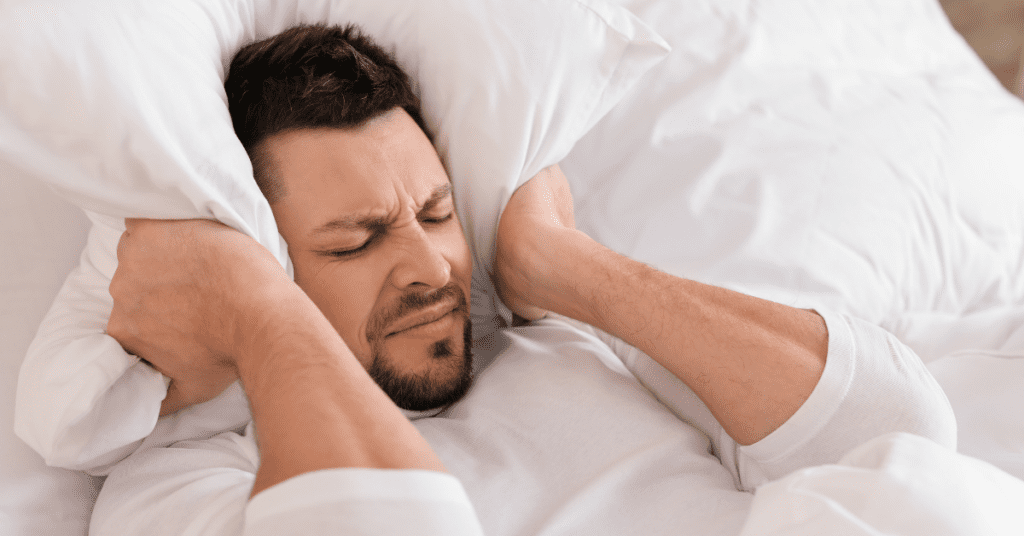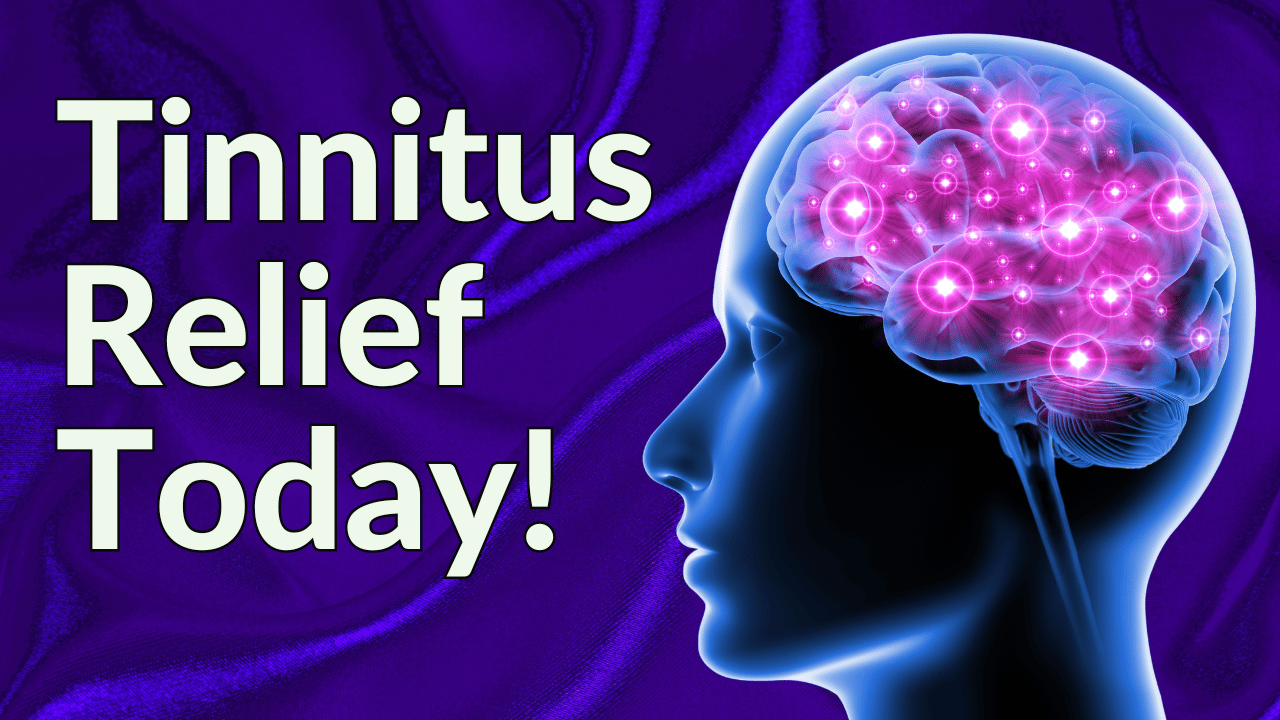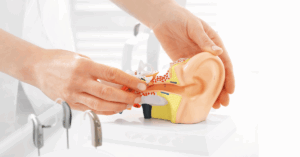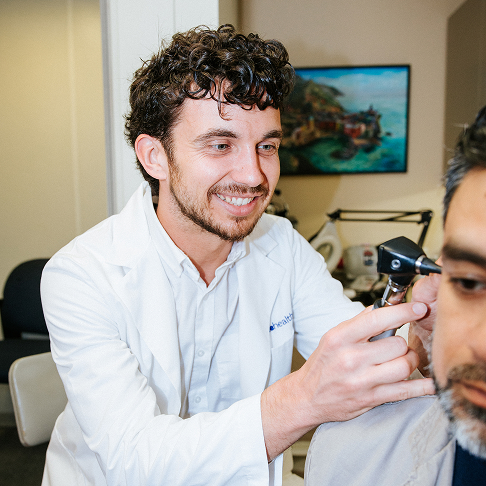Despite tinnitus being a widespread condition that impacts millions globally, our understanding of it remains limited. For many individuals, tinnitus manifests as a temporary buzzing or ringing in the ears, similar to the aftermath of being in loud environments such as concerts or bustling sports venues. Often, these instances are short-lived, with no permanent harm inflicted on the inner ear’s hair cells or its intricate structures.
On the other hand, some individuals endure chronic tinnitus, characterized by persistent or intermittent phantom noises that extend beyond three months. Those experiencing tinnitus might notice fluctuations in the condition’s intensity, particularly during moments of rest at night, upon consuming certain medications, or amidst stress. Recognizing these ‘triggers’ is crucial, as it paves the way for more effective treatment strategies to alleviate the discomfort associated with tinnitus.
Tinnitus – The Ringing Sound In Your Ears
Tinnitus is often characterized as an elusive ringing in the ears, originating from within without any external stimulus or actual auditory source. In most instances, the sounds associated with tinnitus, regardless of their intensity, are perceptible only to the individual affected — this is called subjective tinnitus. Beyond ringing, those with tinnitus might also report hearing a variety of sounds such as humming, buzzing, the mimicry of ocean waves, and even musical tunes.
"As a recent graduate who’s achieved stage four habituation, I cannot thank Treble Health enough for getting me to the finish line."

"As a recent graduate who’s achieved stage four habituation, I cannot thank Treble Health enough for getting me to the finish line."
– Louis
Book a free consultation to learn which Treble Health solution is right for you. Join Louis and thousands more who have found lasting tinnitus relief.
Objective tinnitus, a much less common variant, can be detected by a healthcare provider during an examination and constitutes a mere fraction of all tinnitus cases—less than 1%. This form of tinnitus often signals underlying health issues and is typically more amenable to treatment. An audiologist can assess whether tinnitus is subjective or objective in nature.
Though common, tinnitus itself isn’t considered a disease or a life-threatening medical condition. Tinnitus is a symptom that points to other issues such as hearing loss, middle ear infection, high blood pressure, or ear canal blockage that affects the way the brain interprets electrical signals from the inner ear.
Tinnitus is a complex and unpredictable phenomenon, and according to the National Institute on Deafness and Other Communication Disorders, the underlying cause of the ringing isn’t always clear. This makes tinnitus hard to treat, and even harder to cure. The aim of most treatment plans is therefore minimizing the perception of the tinnitus sound.
Why Does My Tinnitus Seem Louder When I Go To Bed?

Tinnitus is not exempt from its fair share of misconceptions. One of the most common misconceptions is that tinnitus is caused by hearing loss, however, not everyone with hearing loss develops tinnitus. This landmark study by Heller & Bergman suggests tinnitus is so common that most people, even those with normal hearing ability, will experience it in a quiet environment. The lack of environmental sounds seemingly forces the brain to fill in the blanks and may explain why patients with significant hearing loss still report hearing sounds in their head.
This may be the reason tinnitus is louder at night when you’re trying to sleep. The lack of auditory stimulation can cause difficulty sleeping, further exacerbating psychological side effects such as anxiety and depression. Introducing sounds to quiet environments is one way to offer relief, particularly during the hours of 12 am and 8 am when tinnitus is usually the loudest.
Sound Enrichment for Tinnitus
Sound therapy involves the use of pleasing or soothing sounds to manage tinnitus, with goals such as soothing, and distracting the brain. When dealing with insomnia, sound therapy should focus on using neutral sounds (such as white noise, instrumental music or sounds found in nature) to enrich your environment. This reduces the contrast between tinnitus and the ambient noise levels, making it easier to ignore at night.
Ideally, these sounds should be played constantly and at a comfortable noise level. White noise machines are popular for sound enrichment, but like all therapy, approach it with an open mind. You may discover sounds like rustling leaves or fish tank noise is the solution to your sleepless nights. Just the noise of the fan running at night is enough for some people!
Using background sounds to help with tinnitus doesn’t always work right away, and it may take some getting used to. Allowing the sounds to play all night instead of using a sleep timer is typically more effective. Soft noise may be used to reduce the stress and tension caused by tinnitus. Soft noise soothes the mind and body, making it easier to relax and sleep at night.
Online Sound Therapy
Tinnitus After Loud Noise Exposure
Exposure to loud sounds can cause ringing in the ears, but usually, it goes away quickly once the body has recovered from the temporary shock or slight damage to the hair cells responsible for sending sound signals to the brain caused by the loud noise.
Tinnitus is sometimes exacerbated by loud noise, which can make the ringing in your ears worse. Hearing aids are useful devices for amplifying and regulating sound waves, especially for patients with noise-induced or age-related hearing loss. Some hearing aids even have tinnitus features available to help provide a consistent, built-in, tinnitus sound generator to provide on-the-go tinnitus relief during daily wear of the hearing device.
Wear ear muffs or ear plugs when possible to reduce exposure to loud noise and prevent hearing loss. The aim here is the only wear protection when needed, as avoiding sound entirely can have the opposite effect, making you overly sensitive to even normal loudness levels, a condition known as hyperacusis.
Why Does My Tinnitus Change With My Posture?
Tinnitus that changes with posture, i.e. when you move your head, neck, or body into certain positions, is called somatosensory tinnitus. Your doctor may ask you to perform certain movements and use a screening test to rule out or establish this as an underlying cause.
Managing somatosensory tinnitus depends heavily on the patient, and can take the form of muscle relaxation therapy, cervical manipulation, neuromodulation, Botox, and in some instances, surgery. You may also have to seek specialized treatments from medical providers such as ENT, dentists, and/or physical therapists.
If you notice sleeping in one position reduces the ringing in your ears at night, simply assume that position in bed until a treatment plan is established.
Relaxing Can Help To Reduce Tinnitus Symptoms
Tinnitus was initially thought to originate within and only affect the auditory system. Recent studies have suggested non-auditory risk factors such as cardiovascular disease, depression, middle and inner ear disease, and social isolation. Besides buzzing or ringing sounds in one or both ears, tinnitus can affect the Autonomic Nervous System (ANS) and trigger the body’s fight-or-flight system. This can cause sleep issues, increased blood pressure, and trouble concentrating.
Many patients with tinnitus also experience insomnia, a condition characterized by sleeplessness or poor sleep quality. Some researchers believe it causes a heightened sense of alertness and awareness that makes the tinnitus symptoms worse when trying to fall asleep, stay asleep, or achieve high-quality sleep.
Using relaxation strategies may be useful in reducing stress, and alleviating sleeplessness. These include techniques such as deep breathing, progressive muscle relaxation, and guided imagery. Cognitive Behavioral Therapy, CBT, or talk therapy is often recommended for managing tinnitus, but it is also useful for managing stress and insomnia.
What Else Can Make Tinnitus Worse At Night?
When tinnitus symptoms flare up at night, it makes it harder to sleep and function during the daytime. While this can be unpredictable, experts have identified certain triggers linked to causing tinnitus.
Assess your own lifestyle choices, such as the food you eat, and the amount of tension in your life to prevent the ringing in your ear. Avoid caffeine, nicotine, alcohol, and any other food or substance that can cause an increase in blood pressure at night.
Remove your hearing aid at night to prevent earwax buildup, and instead opt for a white noise machine to help with managing the tinnitus sounds. Visit a healthcare professional for earwax removal instead of using a cotton swab to avoid ear canal blockage or damage.
When Should I Seek Help For Tinnitus?
If you start feeling dizzy, experience discharge from your ears, experience a sudden change in hearing, seek medical attention immediately. Seek treatment for certain medical problems that have been linked to tinnitus such as Meniere’s disease, hypertension, and heart disease.
Certain antibiotics, cancer drugs, nonsteroidal anti-inflammatory drugs, and other medications are also known to cause tinnitus. Though this isn’t life-threatening, it can be the key to restful nights and is definitely worth a conversation with your doctor.
Managing Tinnitus With Treble Health
At Treble Health, we understand the unique challenges presented by living with tinnitus. Our team of audiologists is here to help, offering expert guidance and support tailored to your specific condition.
By scheduling a complimentary telehealth consultation, you are taking a vital step towards understanding and managing your tinnitus. In this 20-minute Zoom session, our team will provide personalized recommendations, answer your questions, and help you navigate the complexities of cervicogenic tinnitus. We are committed to helping you find relief and improve your quality of life. Click here to book your free consultation and start your journey to a quieter, more comfortable life.
Next Step: Book Free Consultation
- 75% of patients reduced their tinnitus within three months after following our recommendations.
- "I feel like Treble Health literally gave me my life back." - Randy S. (verified customer)
- Join thousands of people who have reduced their tinnitus after scheduling a free consultation.















